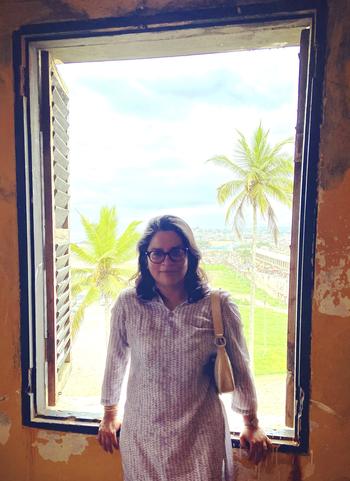Ananya Jahanara Kabir (King’s College London)
Senior Fellow in Research Area 3: "Future Perfect"
November 2023
Milman Parry’s Peripheral Time: Balkan Epic, Oral-Formulaic Theory and Anglo-Saxon Studies
The first person to argue for 'Homer' as an oral poet was the American classicist Milman Parry, who linked Homeric epic's formulaic structure to the traditional songs of South Slavic guslars (poets who sang improvised compositions accompanied by the stringed instrument gusle), amongst whom he immersed himself between 1933–35. After his tragic death in 1936, Parry's legacy was developed by his student Albert Bates Lord, who published Parry's drafts as The Singer of Tales, catalogued the immense audiovisual and photographic archives of their Balkans fieldwork for Harvard University's Widener Library and transformed Parry’s ideas into 'oral-formulaic theory' that was applied to classical, late antique and medieval European literature as well as other improvised genres including jazz and hip-hop.
Kabir discovered 'oral-formulaic theory' during her MPhil in Anglo-Saxon Literature at Oxford during the early 1990s. During her Fellowship in Berlin, she will revisit questions that arose thirty years ago when, as a student from India, she encountered heuristic approaches to the European past developed through material gathered from a 'peripheral' region of Europe that was being completely reshaped through war at that precise moment. With 'Yugoslavia' and the 'Serbo-Croatian' language of Parry's fieldwork long behind us, how do we read Parry reading Homer through Huso, the legendary Muslim master singer of Balkan epic, who had passed away just before Parry arrived in Yugoslavia? Can the concept of 'peripheral time' unravel the convoluted spatio-temporal genealogy driving Parry's argumentation? How did the materiality and technologies of recording interact with the orality that was being captured for comparative analysis? Such questions interrupt productively the notion of the co-eval that underwrites postcolonial modernity in a planetary frame; they also contribute to the current rethinking of the 'medieval' through the lens of critical race theory and decolonial thought by presenting critical philology itself as a decolonial tool and act.
Ananya Jahanara Kabir FBA is Professor of English Literature at King's College London. Her research spans creolisation across the Atlantic and Indian Ocean worlds, critical philology and the relationship between literary texts, embodied cultural expressions and memory work. Between 2013–2018, she directed the ERC Advanced Grant funded project, 'Modern Moves', which investigated the history and global popularity of African diasporic social dances. Her current theoretical explorations of 'Alegropolitics' and 'creolisation' flowed out of that project. Kabir is the author of Paradise, Death and Doomsday in Anglo-Saxon Literature (2002), Territory of Desire: Representing the Valley of Kashmir (2009) and Partition’s Post-Amnesias: 1947, 1971 and Modern South Asia (2013). During 2022-23, Kabir was awarded a British Academy/Leverhulme Senior Research Fellowship to write a new book, Alegropolitics: Creolising Connection on the Afromodern Dancefloor. From January to July 2024, she will take up a Faculty Fellowship at the Global Cultures Institute, King's College London, to develop her new project, 'Fort Creole'. Kabir has been awarded India's Infosys Prize in the Humanities and Germany's Humboldt Research Prize. In July 2023, she was elected as Fellow of the British Academy in their Cultures, Media and Performance section.
